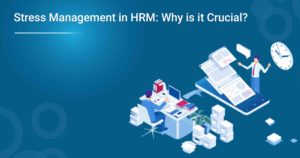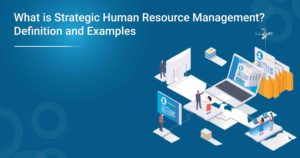Employees leaving a company searching for better opportunities has become more common now. There are various reasons for this. The availability of more jobs with Indian and foreign companies has made getting jobs easy for qualified and skilled people. But companies must find a way to retain employees. The cost of recruiting new persons is much more than retaining them. This is why knowing why people leave is very important, and an exit interview is the best way for this. Every aspiring HR personnel must know what an exit interview is.
What Is An Exit Interview?
It is a very important procedure conducted by the HR department to know the correct employee feedback. It is done with those who are leaving the company. It helps to find out the reasons for someone leaving the firm. Those leaving can also give a clear account of the firm’s strengths and weaknesses. Apart from this, the company can also find out the workers’ views on its policies. There is none better than an old worker giving a correct picture of employees’ feelings about the firm.
An exit interview will enlighten the management about the issues faced by workers. It will help find solutions for such problems and ensure that workers are happy. Those companies working to improve the conditions of employees will benefit greatly from this process. By keeping the staff members happy, organisations can retain them and save a lot of money on recruiting new people. But it is not enough to know what an exit interview is. Companies should conduct it properly and use the results to improve working conditions.
The Post Graduate Certificate Course in Human Resource Management is the ideal place to learn more about this process for those who are not satisfied with knowing what an exit interview is. A visit to our website will provide more details about this program and how one can enrol.
The Exit Interview Process
The actual process may vary from company to company. However, there are some general steps which almost all firms carry out. The process of an exit interview starts when a person submits a notice for leaving the company, or the retirement date is informed. The department head informs the HR department about the employee’s imminent departure from the firm. The human resource department initiates the process of exit interviews by calling the worker for the procedure.
Also Read: What is Stakeholder Engagement? Importance, Planning and Implementation
Many companies prefer a direct meeting between the HR professional and the employee. But depending on the convenience of both parties, it may be conducted in other ways too. Once the information has been collected, the HR department compiles it and sends the valuable data to higher management.
Methods Of Conducting An Exit Interview
It is not enough to know what an exit interview is. One must also learn the different methods it can be conducted. Below are the four common ways in which organisations perform this exercise.
In-Person – This is the most common method used in most companies. An HR official meets the leaving employee on the office premises and engages in conversation. This method allows the interviewer to change questions depending on how the process proceeds. But the HR official will have to enter the answers physically.
Online – This method is very popularly used by companies that operate on a global level. HR departments can use it for employees who are operating in remote locations. The leaving workers are asked to answer questions on the company’s website. The data is stored automatically.
Paper And Pencil – The officials hand over a questionnaire to the staff members on the date they leave the firm. Another method is to mail the form to the employee, asking them to fill it out and send it to the firm. A defect with this method is that many don’t submit the form.
Telephonic Interview – An official from the HR department or an agency employed by the company calls the employee over the phone for an interview.
Purpose Of Conducting An Exit Interview
Now that we are clear about what an exit interview is and how it is conducted, it is time to look at the purpose of such an exercise.
- Collect Honest And Constructive Feedback
It is evident that whatever the method used, workers who are still in the company will only give a partially honest account of what they feel about the company and its policies. But all organisations will benefit from such feedback. The best way to get this data is from someone leaving the firm. Such employees don’t have to fear consequences even if they share a frank opinion about the firm and its operations. Such information is vital for organisations looking to keep their staff happy.
- Evaluate The Management’s Effectiveness
A manager’s efficiency has a direct impact on the efficiency of the subordinates. A good leader is necessary to bring out employees’ full potential and motivate them to contribute to the company’s success. A company must know the effectiveness of its unit heads and top management. The best way to get this information is to conduct an exit interview. Employees leaving the company will provide a true report on how effective their immediate managers and those above them were. Now you know what an exit interview is and how crucial it is.
Also Read: Evolution Of Human Resource Management: Past and Future
- Build Employer Branding
Employer branding is necessary to attract the best talents from the market. As the competition to find good people heats up, every company needs to be perceived as good to their employees and provide the right working conditions. This image comes mostly when past and present company employees talk well about it. Exit interviews are a way to tell workers that their grievances are being heard and necessary action is taken to redress them. A person who has completed the exit interview is likely to talk well about the company in a public space.
- Complete Exit Paperwork
Exit interviews provide a good opportunity to ensure all exit procedures and paperwork are completed. Companies can take this opportunity to get the non-disclosure agreements signed by the worker who leaves the firm. This will ensure that the firm’s secrets don’t get leaked to outsiders. The exit interview will also help in getting tax-related documents signed. The organisation’s belongings that the staff member held can be retrieved and necessary documents signed in this regard. All accounts can be reconciled and settled at this time.
- Tackle Issues Of Communication Gap
It is often seen that the main reason for someone leaving the company is because the correct messages from the top management have not been conveyed properly. An exit interview conducted by the HR department allows the firm to know if the employee had got the right communication that was conveyed by the executives. If there was such a communication gap, the company could come to know of this from the leaving staff member. It provides an opportunity to correct such mistakes.
- Correct Compensation Packages
Compensation packages are often the reason for employees leaving a company. Exit interviews provide the opportunity to know if the firm is paying its employees as per industry standards. It is also possible to know from the workers what they are being offered by the organisation they plan to join. This information can be used to correct the gaps in salaries and benefits. It is also possible to know what other perks companies are offering for people in a particular position. This data is vital if a company wants to be competitive in the job market.
- Discover Conflicts And Disputes
Conflicts and disputes can arise when there are people from various backgrounds working in the same place. This can happen among employees or between them and the management. Sometimes these don’t come out openly and can be the reason for someone leaving the firm. An exit interview is a perfect way to know about such incidents and find solutions for them. A personal discussion with the person leaving the company will also help to uncover any discrimination happening in the establishment. We know now what an exit interview is and how it helps to create a better working environment.
- Helps Retain Valuable Employees
This may not often be the case because a company comes to know of an employee leaving only after the person has finalised his appointment with another company. But at least in some cases, the firm may be able to retain a valuable employee through the exit interview. If the worker comes out with the real reason for leaving and if the establishment can redress the issues, the person may stay back. Retaining employees save money and also improves the image of the firm as a good employer.
We have seen what purposes exit interviews serve and how beneficial it is for the firm. Those who are planning to join the HR profession can learn more about this process by attending the Post Graduate Certificate Course In Human Resource Management. You can visit our website and learn more about this course.
How To Make Exit Interviews Successful?
It is not enough to know what an exit interview is one must also know how to conduct them successfully. If these discussions don’t serve the purpose they are intended for, they become a waste of time. Here are a few tips on how to make this exercise useful.

Choose An Interviewer
The person who interviews the leaving worker plays an important role in making this a success. It is usual to select someone from the HR department because they can be neutral, and the worker will feel free to talk openly. But the company must choose someone good at conversations and gaining valuable information from a discussion. Some companies use an external agency for this purpose so that the employee doesn’t feel any pressure. But in some cases, this may not yield the desired results as the interviewer is an unknown person.
Prepare Well
Every employee is different, and they would have worked in different departments. The person who comes to interview the leaving workers must know what work they have done and who they have worked under. They must also be familiar with the issues that the person may have faced and reported earlier. The interview must be done in a private place where there are no interruptions. The person must feel free to talk openly.
Schedule At The Right Time
The timing of the interview must be right. In many companies, the exercise is done in the middle of the notice period when the person is still invested in the job. At this time, the worker will be open to talking frankly. In some firms, the exit interview is done after the employee has completed all exit formalities. This could make the conversion more casual. The person who is leaving the company may also feel more comfortable sharing his opinions freely.
Make The Conversation Meaningful
The interviewer must listen to the employee very closely. It is also essential that the process yields information that is useful for the firm. Unless the correct data is collected, there is no use in performing this procedure. The person who conducts the exit interview must be good at creating the impression that whatever the worker says is important and will be used to make changes. This will help bring out the correct opinions and views. It is also important to impress upon the staff member that corrective action will be taken on whatever is being told.
It is by now clear what an exit interview is and how it can help a firm build up its image as a good employer. Those interested in knowing more about this procedure can join the Post Graduate Certificate Course in Human Resource Management. Our website is a good place to learn more about this programme.
Conclusion
Every organisation is looking to make the best out of its employees and also provide them with good career opportunities. To achieve this, the firm must know what the workers expect from the company and what they think about the present setup. An excellent way to know exactly what the staff members feel is the exit interview. It is here that workers feel free to talk about their experience in the organisation. This helps in making changes that will help make the company a good employer.
More Information:
What is Strategic Human Resource Management? Definition and Examples
Breaking Down The Scope Of Human Resource Management




























